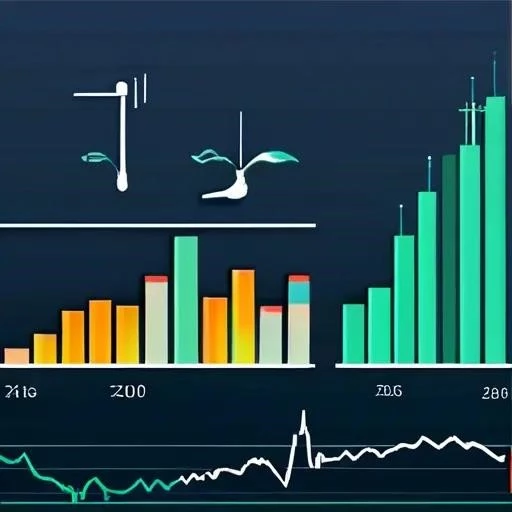In today’s rapidly evolving tech landscape, standing out from the crowd requires more than just a degree. Professionals need to demonstrate practical skills and in-depth knowledge to potential employers. One of the most effective ways to do this is by earning industry-recognized certifications, and specifically, Microsoft certifications offer a powerful pathway to achieving career goals. These certifications validate expertise in various Microsoft technologies, from cloud computing and data analytics to software development and cybersecurity. Earning a Microsoft certification can significantly boost your resume, increase your earning potential, and open doors to exciting new opportunities.
The Value Proposition of Microsoft Certifications
Microsoft certifications provide numerous advantages for both individuals and organizations. They offer a standardized way to measure and validate technical skills, ensuring that professionals possess the competencies required to succeed in demanding roles. These credentials demonstrate a commitment to continuous learning and professional development, which is highly valued by employers in the tech industry.
Benefits for Individuals
- Enhanced Career Prospects: Gain a competitive edge in the job market and increase your chances of landing your dream job.
- Increased Earning Potential: Studies show that certified professionals often earn significantly more than their non-certified counterparts.
- Improved Skills and Knowledge: The certification process requires a deep understanding of Microsoft technologies, leading to enhanced skills and knowledge.
- Industry Recognition: Microsoft certifications are globally recognized and respected, providing credibility and validation of your expertise.
Benefits for Organizations
- Improved Productivity: Certified employees are more efficient and effective, leading to increased productivity and performance.
- Reduced Risks: Certified professionals are better equipped to handle complex technical challenges, reducing the risk of errors and downtime.
- Enhanced Innovation: Certified employees are more likely to contribute to innovation and the development of new solutions.
- Increased Customer Satisfaction: Customers are more likely to trust organizations with certified professionals on staff.
Choosing the Right Microsoft Certification Path
Microsoft offers a wide range of certifications covering various roles and technologies. Selecting the right certification path depends on your career goals, existing skills, and areas of interest. Consider exploring the different categories, such as:
- Microsoft Azure Certifications: Focus on cloud computing, data management, and AI solutions.
- Microsoft 365 Certifications: Cover productivity tools, collaboration platforms, and security solutions.
- Microsoft Dynamics 365 Certifications: Validate expertise in customer relationship management (CRM) and enterprise resource planning (ERP) systems.
- Microsoft Data & AI Certifications: Demonstrate skills in data analysis, machine learning, and artificial intelligence.
Before committing to a specific certification, research the prerequisites, exam objectives, and available training resources. Utilize Microsoft Learn, online courses, and practice exams to prepare effectively.
FAQ about Microsoft Certifications
Q: How long does it take to prepare for a Microsoft certification exam?
A: The preparation time varies depending on your existing knowledge and the complexity of the exam. It can range from a few weeks to several months.
Q: How much does a Microsoft certification exam cost?
A: Exam costs vary depending on the certification level and region. Check the official Microsoft website for the most up-to-date pricing information.
Q: How long is a Microsoft certification valid?
A: Most Microsoft certifications are valid for one to two years. Recertification is often required to maintain your credentials.
Q: Where can I find training materials for Microsoft certifications?
A: Microsoft Learn offers free online training modules. You can also find paid courses and practice exams from various training providers.
.
In today’s rapidly evolving tech landscape, standing out from the crowd requires more than just a degree. Professionals need to demonstrate practical skills and in-depth knowledge to potential employers. One of the most effective ways to do this is by earning industry-recognized certifications, and specifically, Microsoft certifications offer a powerful pathway to achieving career goals. These certifications validate expertise in various Microsoft technologies, from cloud computing and data analytics to software development and cybersecurity. Earning a Microsoft certification can significantly boost your resume, increase your earning potential, and open doors to exciting new opportunities.
Microsoft certifications provide numerous advantages for both individuals and organizations. They offer a standardized way to measure and validate technical skills, ensuring that professionals possess the competencies required to succeed in demanding roles. These credentials demonstrate a commitment to continuous learning and professional development, which is highly valued by employers in the tech industry.
- Enhanced Career Prospects: Gain a competitive edge in the job market and increase your chances of landing your dream job.
- Increased Earning Potential: Studies show that certified professionals often earn significantly more than their non-certified counterparts.
- Improved Skills and Knowledge: The certification process requires a deep understanding of Microsoft technologies, leading to enhanced skills and knowledge.
- Industry Recognition: Microsoft certifications are globally recognized and respected, providing credibility and validation of your expertise.
- Improved Productivity: Certified employees are more efficient and effective, leading to increased productivity and performance.
- Reduced Risks: Certified professionals are better equipped to handle complex technical challenges, reducing the risk of errors and downtime.
- Enhanced Innovation: Certified employees are more likely to contribute to innovation and the development of new solutions.
- Increased Customer Satisfaction: Customers are more likely to trust organizations with certified professionals on staff.
Microsoft offers a wide range of certifications covering various roles and technologies. Selecting the right certification path depends on your career goals, existing skills, and areas of interest. Consider exploring the different categories, such as:
- Microsoft Azure Certifications: Focus on cloud computing, data management, and AI solutions.
- Microsoft 365 Certifications: Cover productivity tools, collaboration platforms, and security solutions.
- Microsoft Dynamics 365 Certifications: Validate expertise in customer relationship management (CRM) and enterprise resource planning (ERP) systems.
- Microsoft Data & AI Certifications: Demonstrate skills in data analysis, machine learning, and artificial intelligence.
Before committing to a specific certification, research the prerequisites, exam objectives, and available training resources. Utilize Microsoft Learn, online courses, and practice exams to prepare effectively.
A: The preparation time varies depending on your existing knowledge and the complexity of the exam. It can range from a few weeks to several months.
A: Exam costs vary depending on the certification level and region. Check the official Microsoft website for the most up-to-date pricing information.
A: Most Microsoft certifications are valid for one to two years. Recertification is often required to maintain your credentials.
A: Microsoft Learn offers free online training modules. You can also find paid courses and practice exams from various training providers.
Staying Current: The Importance of Recertification and Continuous Learning
The tech world is in constant flux, with new technologies and updates emerging regularly. Simply obtaining a Microsoft certification once isn’t enough to guarantee long-term career success. It is crucial to prioritize recertification and embrace continuous learning to stay ahead of the curve and maintain your competitive edge. Microsoft understands this and offers various pathways for recertification, ensuring that your skills and knowledge remain relevant and up-to-date.
Exploring Advanced Certifications
After achieving foundational certifications, consider pursuing advanced certifications in specialized areas. This demonstrates a deeper level of expertise and allows you to focus on specific technologies that align with your career interests. For example, after obtaining an Azure Fundamentals certification, you might pursue an Azure Solutions Architect Expert certification to showcase your ability to design and implement complex cloud solutions.
Leveraging Microsoft Learn and Community Resources
Microsoft Learn provides a wealth of free resources, including learning paths, modules, and hands-on labs, to help you stay current with the latest technologies. Engaging with the Microsoft community through forums, blogs, and social media channels can also provide valuable insights and opportunities for learning from other professionals. Actively participating in these communities can help you stay informed about industry trends and emerging technologies, further solidifying your expertise.
Practical Application and Project-Based Learning
While certifications provide a strong foundation, it’s essential to complement your learning with practical application. Seek opportunities to work on real-world projects that allow you to apply your skills and gain hands-on experience. This can involve contributing to open-source projects, volunteering your skills to non-profit organizations, or working on personal projects that align with your interests. Project-based learning helps you solidify your understanding of Microsoft technologies and develop valuable problem-solving skills.




